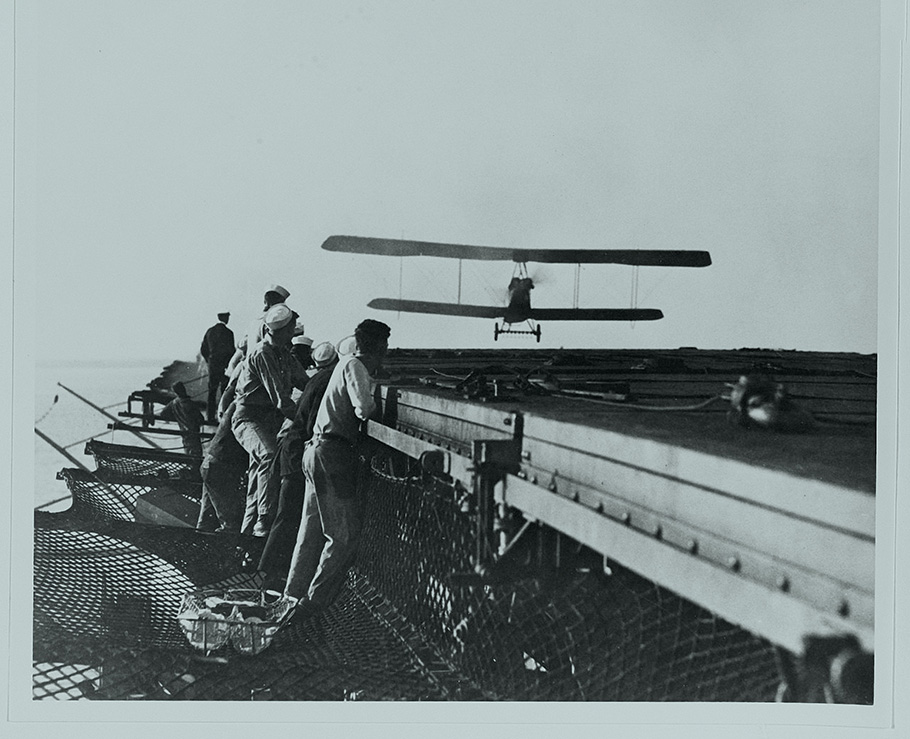- Sep 9, 2022
- 24,369
- 11,850
- 1,138
- Thread starter
- #301
Why thank you sir.Gee, great response.
Follow along with the video below to see how to install our site as a web app on your home screen.
Note: This feature may not be available in some browsers.
Why thank you sir.Gee, great response.
I did not lay into you. Why did you lay into me? I said what I said because you seem to me to want to defend FDR. All you had to tell me is no, you do not defend FDR.
Sure can tell you are a loyal Democrat.
My claim only amounts to telling posters here that an important book is out that explains FDR.
While the war had convinced Navy brass that airplanes were indeed essential, many senior naval officers believed aviation had little value to the fleet beyond scouting and observing the fall of shot for battleships.Actually, they were. They were simply using them in a very different way (as did every other fleet at the time).
Before WWII, the main use for a carrier was actually transporting aircraft. If you want to move fighters to most locations, that has to happen in one of two ways. You send them by freighter disassembled in crates. That means extra time to reassemble and test them, and hope nothing broke on the way. Plus you still have to get the pilots there.
Or you send a carrier with the aircraft and crews on board. This was the preferred method, as the planes were guaranteed to work and they had their air crews with them when they arrived. That is what every one of our carriers in the Pacific had been busy doing when the war started.
The other important mission was scouting. Planes were simply more effective at scouting than ships were, they could cover a larger distance with a better view of the area. And their scouting aircraft were better than the ones the Battleships carried.
And finally, attacking the carriers of the other side. Because odds are, if a "conventional battle" like Admiral Yamamoto had envisioned had actually happened, here is what the result would have been.
The Battleships fighting it out at the battle line, along with cruisers and destroyers. And the carriers far behind them, using their aircraft to go after the carriers of the other side. At sea under combat conditions, aircraft are actually pretty poor at sinking battleships. So they would have been far more effective going after the carriers of the other side, which would be lightly defended at best as most of the surface combatants were off slugging away at each other. And if the surface battle went against them, the carriers were far enough away they could retreat before they were engaged.
However, rather quickly the US realized that was not a good idea. So they refused to play by the "traditional playbook", and threw it away and made their own plans. Keep all of your ships as far away as possible from the battleships of the other side, save the battleships for taking islands and smaller surface groups.
And that is exactly how the Battle of Midway played out. The US battle line was carrier and land based aircraft, 8 cruisers, and 15 destroyers. The Japanese were 2 battleships, 2 cruisers, and 12 destroyers.
The rest of the invasion force? 2 more carriers, 5 battleships, 6 cruisers, and 10 destroyers. None of which participated in the battle at all as they were too far away.
That was one of the beauties of Midway, in essence the Japanese were ambushed. They were not prepared to fight, and did not have their fleet arranged in a way to fight. They thought they were ambushing Midway with carrier based attacks on the island, and would have plenty of time to assemble their entire fleet before American forces arrived. But in reality, we knew they were coming and ambushed them long before they were ready. In fact, a key part of the US victory was the time lost by the Japanese fleet in the confusion their attacks caused, and their having to change out armament loads from ground attack to sea attack.
But if the Japanese had thought to assemble their entire fleet in advance, then the US would have been doomed. As the first air attacks went after the Japanese carriers, their surface fleet would have gone straight for the US carriers. And without battleships of their own to fend them off, they would have been forced to retreat or be sunk by the Japanese battleships and cruisers.

I will get back to you if I ever get butt hurt.Uh-huh.
Sure you did. All I give a damn about in this topic is the reality of naval warfare at the time. I am pointing out simple facts, and if you notice backing them up with actual references.
Remember your complaints earlier about how many combat ships were at Pearl Harbor? You did the same thing, until I finally had enough and gave you the actual breakdown of all the ships there. And the final count, I was right. You were counting every single ship there as a "combat ship", including oilers, mine sweepers, troop transports, and tug boats. None of which mean anything in a surface action as none of those are warships.
"Important", yet you are not able to provide a single reference to back up the claims. If your book was so damned important, than it should be easy to provide other references that validate the claims in them.
I deal in facts, and nothing else. If something can not be backed up independently, then as far as I am concerned it is all moonbeams and backwash.
FDR chose General George Marshall as COS over more qualified Officers who had a better record?
Care to actually explain that bit of silliness?
As I said, I do not argue. I debate. Which means presenting actual evidence and not just making flippant claims without anything to back them up. However, you appear to love just making claims and backing them up with more claims.
You can't realistically expect the Navy in Hawaii to remain on "full alert" for four months when the FDR administration didn't seem to be on full alert itself. When the shit hit the fan it was Marshall who had a chance to take the initiative but Marshall was a bureaucrat drone who hadn't taken the initiative in his entire military career. After the attack FDR quickly put the American media under military rule and any criticism was quickly delt with.
Not only that but their Chief radiomen were in the Inland Sea sending bogus messages. Radio operators can tell the “fist” of other operators sending Morse.I love the fact that in the book, he claimed that the Japanese Fleet was constantly breaking radio silence. When in reality, the radio rooms were locked up, and many had their transmit keys locked up. They were in complete radio blackout, a trick the US copied when they sent their forces to Midway the next year.
Not only that but their Chief radiomen were in the Inland Sea sending bogus messages. Radio operators can tell the “fist” of other operators sending Morse.

Read the book. It’s all there, to say nothing of all the well known incriminating evidence.Yet nobody seems to be able to point out a verifiable reference. Amazing.
Read the book.
I say "yes" ..... and "no". I think he wanted war in Europe but because the American population didn't support that war, and even supported Hitler outright, so finding an excuse (or creating an excuse) gave him a "forced" upon declaration of war by Hitler. As I recall FDR had links to England through marriage (I may be wrong) and don't forget that Göring's wife was Swedish. So, getting into one war or avoiding another is interesting.Did FDR want a war with Japan?
Assuming all of that is true, it is new information for me. America did not want war. FDR worked with Churchill to get us deep in. Such as lend lease. Such as escorts of ships to England. A friend who now has passed to heaven told me he was in the Navy and he rose to Commander. But his early day he was enlisted and told me he was on ships that hunted the Germans submarines off our East Coast. We need a lot more data from those who truly was in that very distant war. He hunted the Submarines ahead of FDR talking he was in war.I say "yes" ..... and "no". I think he wanted war in Europe but because the American population didn't support that war, and even supported Hitler outright, so finding an excuse (or creating an excuse) gave him a "forced" upon declaration of war by Hitler. As I recall FDR had links to England through marriage (I may be wrong) and don't forget that Göring's wife was Swedish. So, getting into one war or avoiding another is interesting.
How can this be about race? Why did you bring it up?To be honest, I always tend to suspect just a tad amount of racism when dealing with topics like this.
You have tried to shit all over the book. And by no means have you told us why you are the ultimate authority.If the book and the claims in it had any validity, then one should be able to validate the claims from independent sources.
As apparently nobody can come up with any kind of confirmation from independent sources, I can only dismiss it as conspiracy theory nonsense.
This is one of those common but ambiguous statements that we see every day. Did the American population want to go to war? No. Can I prove it? As easy as pie. But did FDR want it? That's an entirely different subject. He did. The surpise attack on Pearl harbour was no surprise at all. FDR knew the Japs were on the way and that is why (according to the scholars) the best ships were a-sail...... America did not want war ....
Well said agreement to my own remarks. Thanks a bunch.This is one of those common but ambiguous statements that we see every day. Did the American population want to go to war? No. Can I prove it? As easy as pie. But did FDR want it? That's an entirely different subject. He did.
BTW: I refined my response if you scroll back to it.Well said agreement to my own remarks. Thanks a bunch.
Thanks. I recall though how the Japanese went against our Carriers and were successful sinking them.BTW: I refined my response if you scroll back to it.